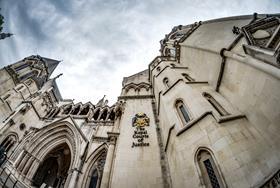
The High Court was right to dismiss a mesothelioma claim where a material increase in risk could not be proved, appeal judges have ruled.
The husband of Elaine Johnstone brought the claim after she died from malignant mesothelioma in 2019: in the 1980s she had worked in an office across from a garage workshop where asbestos was present.
Jointly ruling in Johnstone v Fawcett’s Garage (Newbury) Ltd, Lord Justice Coulson, Lady Justice Nicola Davies and Lord Justice Zacaroli said the claimant could not prove that the garage was responsible for a material increase in the risk of Johnstone developing mesothelioma.
Lawyers involved in the case say the judgment clarifies the application of the ‘creator of the risk’ principle in these claims, and restates the importance of epidemiological evidence in disease litigation.
The trial had taken place over five days in 2023 before His Honour Judge Simon. The principal evidence came from a mechanic who worked at the garage at the time, and most oral evidence was provided by six different medical experts. The judge preferred defence experts’ lower estimates on the asbestos exposure suffered by Johnstone. He found that any increase in risk was 0.1% or less, and because this was not a material increase, the claim failed.
The first four grounds of appeal all went to this calculation of the increased risk of mesothelioma, with a fifth ground amounting to an ‘oblique attack’ on the judge’s analysis.
Claimant lawyers asked the appeal court to draw an adverse inference based on the lack of air quality records kept by the garage, but the appeal judges said this would lead to an ‘illogical and unsound result’.
The claimant also argued that the trial judge had failed to apply the special rule in mesothelioma cases that liability is determined where there is a material increase in risk as a result the defendant’s breach of duty. However small the risk may be in absolute terms, it was submitted, if it was more than a de minimis increase in the background risk, liability should be established.
The appeal judges rejected this approach and did not accept that the absolute risk approach was appropriate in cases where the court had to assess the material increase in risk of developing mesothelioma.
Following the ruling, defence counsel David Platt KC and A John Williams, from Crown Office Chambers, said the claimant argued that he should not bear the burden of any difficulty in proving that exposure to asbestos caused the increase in material risk. ‘That argument was rejected as jurisprudentially unsound and, by implication at least, liable to distort the balance of competing interests reflected in the decision that mesothelioma claims should be the subject of a special rule of causation.’
They added: ‘The judgment is a helpful re-statement of the important role of epidemiology evidence. The issue raised by the claimant on appeal was wrongly characterised as an “improper” use of statistics when, in fact, the real issues were the weight to be attached to epidemiological evidence and the relevance of that evidence to the circumstances of the claimant/deceased.’










